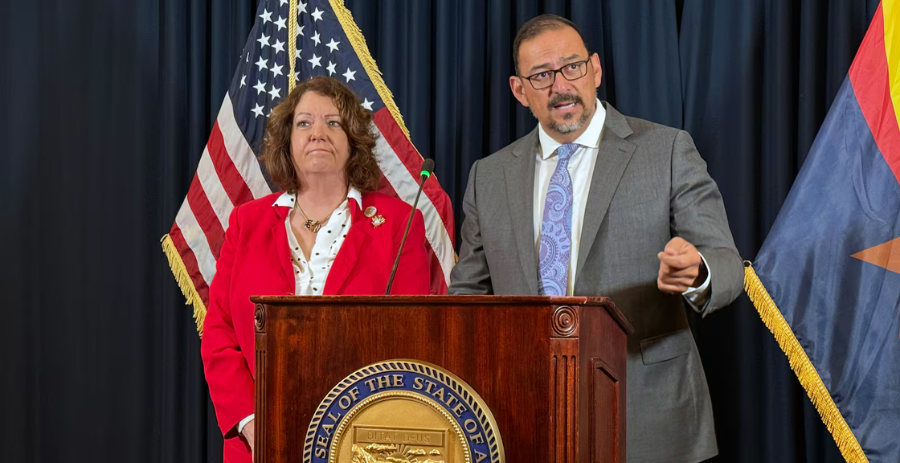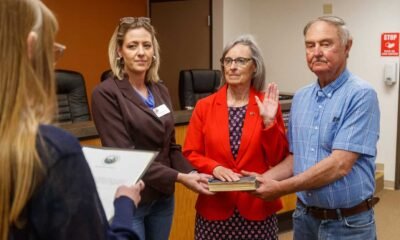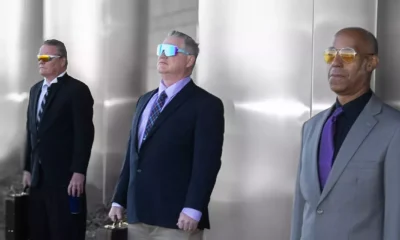2024 elections
Fontes Takes Pinal County Election Violations to Arizona Supreme Court

Arizona Secretary of State Adrian Fontes is seeking intervention from the state’s Supreme Court to ensure that Pinal County adheres to election laws before the upcoming election.
In recent filings, Fontes highlighted that Pinal County Superior Court Judge Delia Neal, appointed by former Governor Doug Ducey, recognized the county’s illegal stance. The county failed to allow voters to cast their ballots at any polling location, a requirement stipulated in the Elections Procedures Manual.
Despite this, Judge Neal ruled earlier this month to permit the county to bypass the law for the current election cycle, citing insufficient time for changes.
Fontes challenged this reasoning, pointing out that the requirement was established last December. He underscores that the county had ample time to comply but chose not to do so.
The secretary’s office, represented by Assistant Attorney General Kara Karlson, expressed concerns over unequal treatment of voters. Fontes warned that some voters in Pinal County may be disenfranchised while similar voters in the other 14 counties will have their ballots counted.
“A voter from Apache Junction in Maricopa County may cast their ballot regardless of location. However, a resident in Pinal County risks total disenfranchisement,” Fontes argued. He urged the justices not to permit the county to violate equal protection rights by ignoring established election laws.
With the election looming in less than two weeks, a swift ruling is expected.
At the core of this dispute are recent amendments to the Elections Procedures Manual. These updates mandate that counties allow voters who arrive at the wrong precinct to cast a ballot specifically for their designated precinct.
Advancements in technology, specifically the availability of accessible voting devices, support this requirement. These devices accommodate voters with disabilities and ensure that ballots can be printed and tabulated correctly.
Fontes emphasized that each precinct must possess an accessible voting device with ballot options tailored to that precinct’s races. He argued that based on programming capabilities, these devices could handle ballots from multiple precincts, allowing for provisional ballot processing.
However, he expressed disappointment that Judge Neal recognized the county’s actions as illegal but did not enforce immediate compliance.
“The defendants are not afforded discretion to bypass the manual’s requirements,” Fontes noted. The judge confirmed that the county was aware of its obligations yet chose not to comply.
Fontes stressed that the issue transcends theoretical debate, as Pinal County anticipates voters may arrive at incorrect locations on election day.
“Only in Pinal County will these voters be denied the chance to cast their ballot, even though the county has the capability to provide the correct options,” he stated. Fontes is adamant that voters should not be penalized for the county’s failure to uphold its responsibilities.
In addressing arguments from the county regarding feasibility, he asserted, “Public officials should not need compulsion to fulfill legal obligations.” He maintained that all entities must adhere to the law, irrespective of differing opinions on its merit.
Fontes also dismissed concerns about additional burdens placed on county officials, indicating that any excess workload stems from the county’s own non-compliance.
Furthermore, he stated that requiring compliance with the law would not impose significantly greater demands, as training for provisional clerks already takes place at each polling venue.
Lastly, Fontes flagged the constitutional implications of allowing Pinal County to neglect its responsibilities. He argued that failing to tally votes from out-of-precinct voters would create disparities among Arizona voters, potentially setting the stage for future legal challenges.
“No county should be allowed to undermine confidence in the election process based on its own policy preferences,” he asserted. Allowing such violations to persist could result in significant confusion regarding Arizona’s electoral system.


















